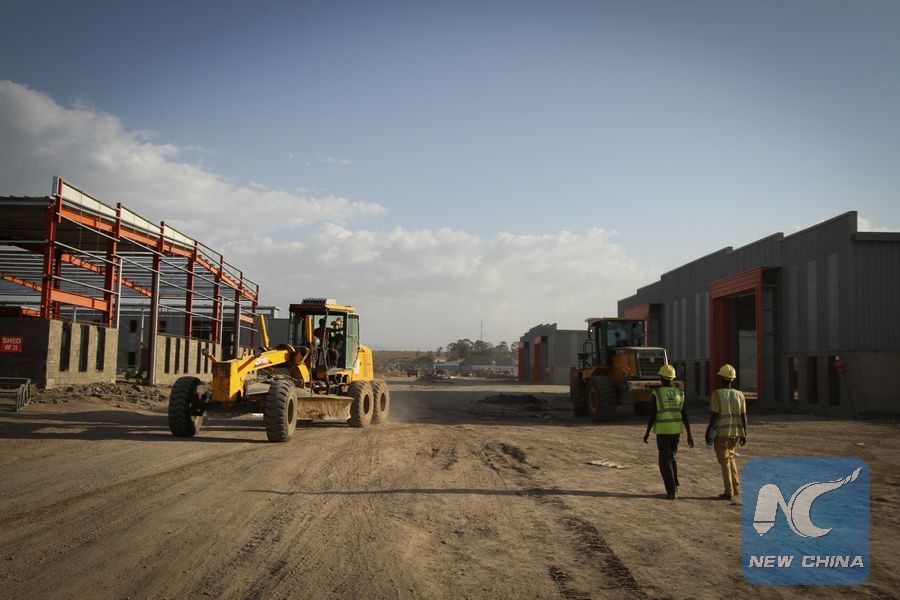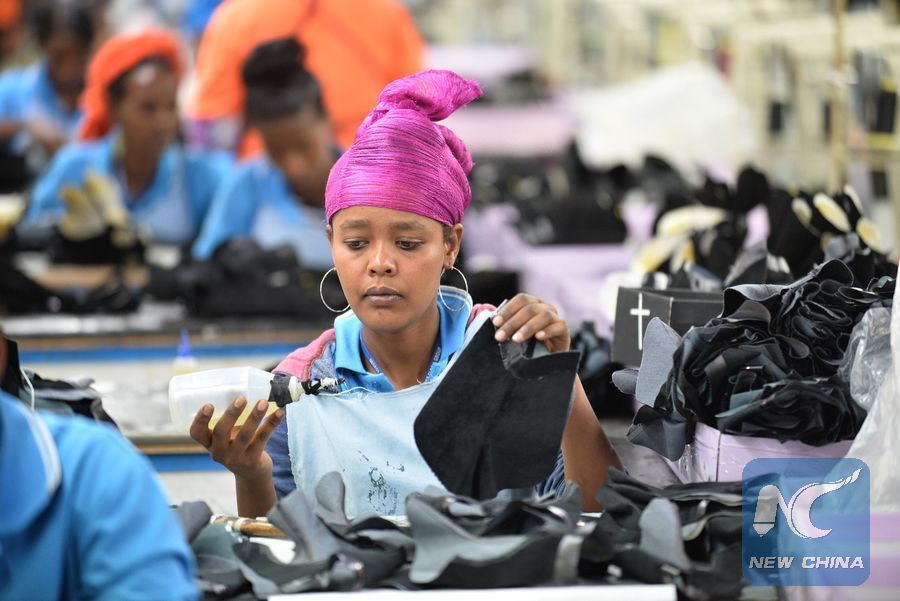
File photo shows workers are seen at a construction site of an industrial park in Hawassa, Ethiopia, Feb. 3, 2016. (Xinhua /Michael Tewelde)
ADDIS ABABA, Dec. 28 (Xinhua) -- China can advise African governments on the important aspects of skills and efforts that are required to make industrial parks attractive and effective, an Ethiopian scholar said Thursday.
Costantinos Bt. Costantinos, who served as an economic advisor to the African Union (AU) and the United Nations Economic Commission for Africa (ECA), told Xinhua on Thursday that "African governments can make good use of China's proven experience in the development of industry parks."
Ethiopia, similarly with other African economies, is presently exploring the best possible ways of employing its natural resources and its demographic dividend so as to transform its agriculture-dominated economy towards becoming the manufacturing hub of Africa.
According to Costantinos, China's development model of industrial parks could be seen as a proven lesson for Ethiopia as well as other African countries as they envisaged to transform their economies.
"Like the Chinese experience, these industrial parks will contribute better if capital (both local and foreign currency) is available for investors," Costantinos said.

File photo shows a worker goes about her work at Bole Lemi Industrial Park in Addis Ababa, capital of Ethiopia, April 6, 2017. (Xinhua/Michael Tewelde)
Following China and other Asian economies' great industrial revolution, African nations are building industrial parks because they believe that these parks will bring employment and national income that create value, he added.
According to the expert, the flourishing industrial parks in Ethiopia are "vital elements of the infrastructure supporting the structural transformation in Ethiopia that can attract institutional investors."
Costantinos, also professor of public policy at the Addis Ababa University in Ethiopia, however urged African countries to study China's experience that led to its success in the sector.
"When institutional investors descended into China's industrial parks, China had the right mix of macroeconomic and financial policies that allowed the institutional investors to operate profitably in the global market," he said.
"Africa needs to set this in motion immediately, otherwise the industrial parks will remain white elephants," the expert advised.
"China can advise African governments what kind of skill and effort is required to make an industrial park attractive, like they have accomplished in the already successful Dukem Park (Ethiopia's Eastern Industry Zone)," Costantinos said.
Costantinos also stressed that as an increasing number of Chinese companies currently investing their capital in Ethiopia's industry zones, mainly in the manufacturing sector, the East African country would benefit from the ongoing investment scenario.
Chinese companies inside these industrial parks will drive the development of the manufacturing sector, according to Costantinos.
At present, 15 industrial parks are under the pipeline across Ethiopia, most of which were built, operated, or under construction by Chinese companies.
Six of the industrial parks have been officially put into use over the past few years, attracting a large number of transnational companies from countries including China and India.

